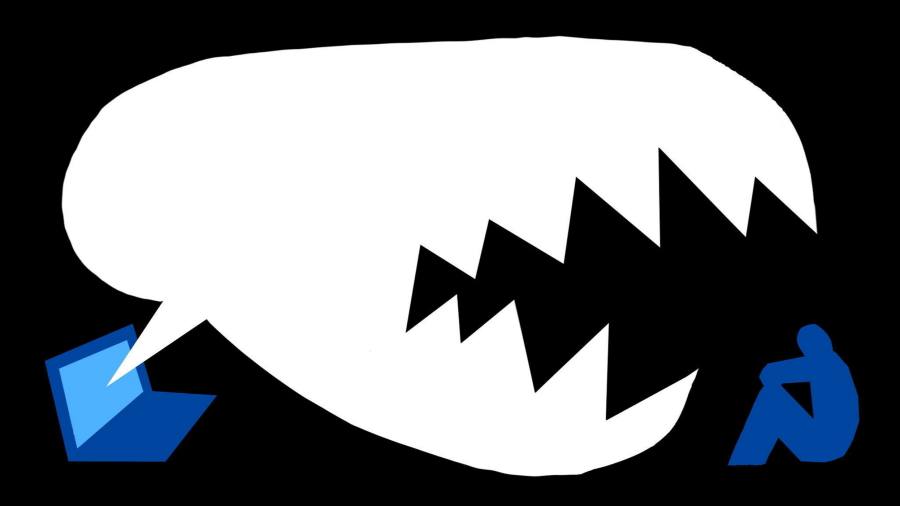[ad_1]
For all the cat videos, funny memes and genuine insights the internet has to offer, it can sometimes — social media, in particular — be a bewildering, hostile and downright depressing place.
I’ve had some personal experience of this over the years, on the occasions my opinions have strayed too far from the morally righteous consensus du jour, or any time I have dared to criticise the cultish world of crypto. I had one especially aggravating episode a couple of weeks ago, having agreed to speak at a bitcoin conference.
After using the verbal filler “like” too much during one particularly combative segment of my panel, I was summarily turned into various memes and video montages that totally clogged up my notifications for about 36 hours. There was the usual name-calling and trolling, but also some nastier than usual tweets and messages calling me the kind of offensive and misogynistic things that I can’t repeat here, and one that suggested I should die by suicide.
I was aware that the people attacking me had a huge financial incentive to invalidate my criticisms, so that helped me to not take any of it too seriously. I even found some of the memes funny. But after a while, the sheer weight of negativity began to fill me with gloom about the number of people prepared to be so vile on the internet.
What I found particularly disconcerting was that most of the people I had met at the conference — with one notable exception — had been pleasant to me, despite disagreeing with my views. These same people were now, a couple of hours later, calling me a “dumb b**ch” on the internet.
This is the problem with social media: while we might try to use real-world examples to make some kind of sense of it — like Elon Musk’s idea that Twitter is the “digital town square” — it is in fact, to quote Dave Chappelle, not a real place at all. If it were, then there would be moral, social and therefore emotional costs associated with behaving badly. Instead, as long as you are on the “right” side of a given issue, you can bully, name-call and “pile on” to your heart’s content, and still consider yourself to have virtue on your side.
Some of these problems might be helped by reforming a piece of US legislation passed in 1996 that has been dubbed the “26 words that created the internet”. This is Section 230 of the Communications Decency Act, which gave platforms — internet forums as they were back then — legal immunity from any third-party content they published. Rather than being treated as publishers that are liable for the material they host, Section 230 has allowed US social media platforms to shirk any kind of legal responsibility.
But just because these platforms don’t face consequences for publishing hateful or harmful content — and, perversely, are financially incentivised to create the algorithms that prioritise it — that doesn’t mean they have no moral responsibility for it. Yet this is often how they behave: as Imran Ahmed, chief executive of the Center for Countering Digital Hate, puts it to me, social media platforms seem to have decided that, just because they have no legal liability for what they publish, they should have “moral impunity” too.
Steve Randy Waldman, a computer programmer and blogger, believes Section 230 protections should be removed, but not to the extent that platforms are turned into publishers like any other, which would prevent genuine and open public discourse. Instead, platforms could be given a certain notice period — he suggests 24 or 48 hours — after receiving a complaint about any given content, and at this point should bear legal responsibility for it.
This seems sensible to me. And taking away the immunity conferred by Section 230 might also change the mass-market version of the internet spawned by this legislation, which could make it a kinder, more fun and tolerant place. Social media is, after all, a most unnatural phenomenon: we are all lumped together and expected to be happy with the way everyone else is behaving despite the fact that they might have entirely different values and sensitivities, not to mention sense of humour, from us.
Such harmony strikes me as an impossibility. As Waldman puts it, “a mixed martial arts community doesn’t want to speak in the same way a trauma survivor community wants to speak”. If we want to stop the internet becoming either a desperately bland or perfectly horrible place, we need to start treating it as somewhere we would be happy spending time in real life. That includes imposing moral and social consequences for behaving like an idiot.
[ad_2]
Image and article originally from www.ft.com. Read the original article here.

